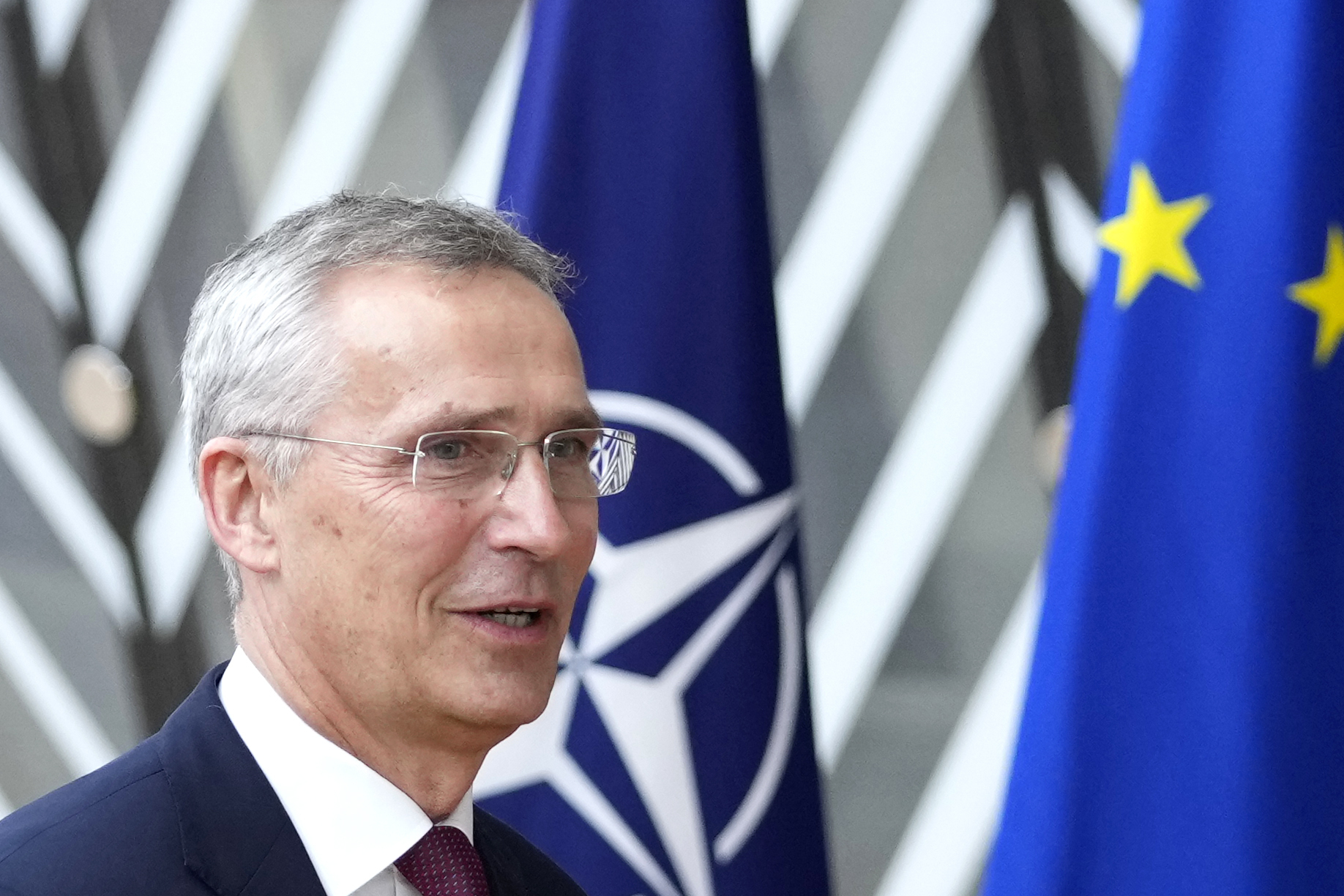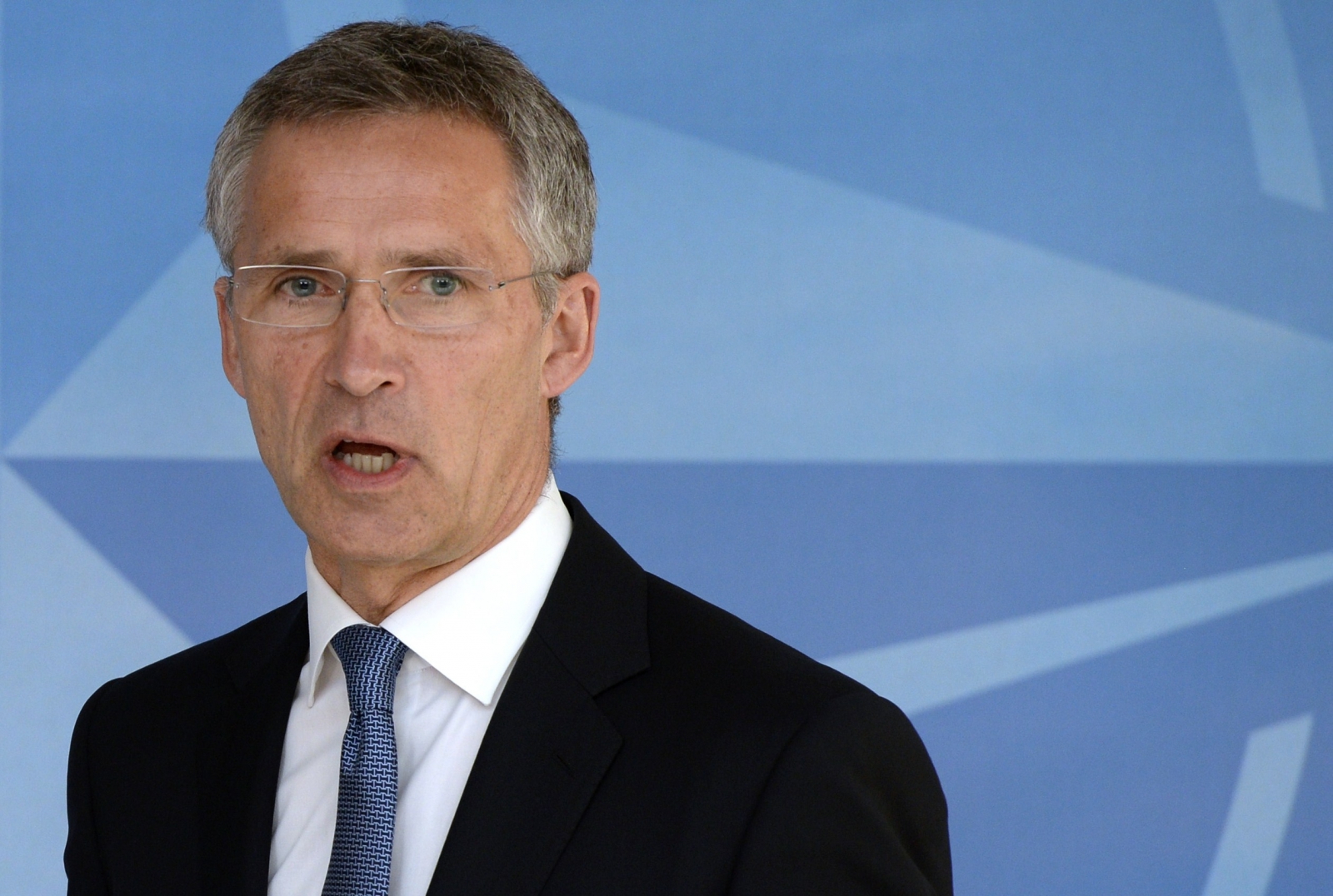Background and Profile of Jens Stoltenberg

Jens Stoltenberg is a Norwegian politician who has served as the Secretary General of the North Atlantic Treaty Organization (NATO) since 2014. He previously served as the Prime Minister of Norway from 2005 to 2013.
Stoltenberg was born in Oslo, Norway, on March 16, 1959. He is the son of Thorvald Stoltenberg, a former Norwegian foreign minister and UN High Commissioner for Refugees, and Karin Stoltenberg, a physician.
Stoltenberg studied economics at the University of Oslo and political science at the University of Copenhagen. He began his political career in the Norwegian Labour Party in the early 1980s. He served as Minister of Industry and Energy from 1993 to 1996 and Minister of Finance from 1996 to 2000.
Jens Stoltenberg, NATO’s Secretary General, delivered a speech at the prestigious Mellon Auditorium in Washington, D.C. The auditorium, known for its impressive acoustics and elegant design, provided a fitting backdrop for Stoltenberg’s address on the challenges facing the transatlantic alliance.
In 2000, Stoltenberg was elected leader of the Norwegian Labour Party. He led the party to victory in the 2005 parliamentary election and became Prime Minister of Norway.
As Prime Minister of Norway
As Prime Minister, Stoltenberg oversaw a period of economic growth and prosperity in Norway. He also played a key role in Norway’s response to the 2008 financial crisis.
Stoltenberg’s government also made significant progress on climate change. Norway became one of the first countries in the world to adopt a carbon tax, and Stoltenberg’s government invested heavily in renewable energy.
Jens Stoltenberg, the current Secretary General of NATO, has been instrumental in coordinating the efforts of the alliance’s nato members. Under his leadership, NATO has strengthened its collective defense capabilities and expanded its partnerships with countries around the world.
Stoltenberg’s leadership has been critical in maintaining the alliance’s unity and effectiveness in the face of growing challenges.
As Secretary General of NATO
In 2014, Stoltenberg was appointed Secretary General of NATO. He has led the organization through a number of challenges, including the Russian annexation of Crimea and the ongoing conflict in Ukraine.
Stoltenberg has also been a strong advocate for NATO’s enlargement, and he has overseen the accession of Montenegro and North Macedonia to the alliance.
Stoltenberg’s Role in International Diplomacy

Jens Stoltenberg has played a pivotal role in international diplomacy, particularly during his tenure as Secretary General of NATO. His leadership has been instrumental in strengthening the alliance and navigating complex geopolitical challenges.
NATO’s Response to Russian Aggression, Jens stoltenberg
Stoltenberg’s leadership was tested during Russia’s annexation of Crimea and its subsequent involvement in the conflict in eastern Ukraine. Under his guidance, NATO implemented a series of measures to deter further Russian aggression, including increasing military presence in the region and strengthening its cyber defense capabilities.
Conflict Resolution and Crisis Management
Stoltenberg has also been involved in conflict resolution efforts beyond NATO’s traditional sphere of influence. He played a key role in facilitating dialogue between the United States and North Korea during the heightened tensions over the country’s nuclear program.
Stoltenberg’s Impact on Norwegian and European Politics

Jens Stoltenberg’s tenure as Prime Minister of Norway (2005-2013) and NATO Secretary-General (2014-present) has left a significant imprint on both Norwegian and European politics. His domestic policies and diplomatic efforts have shaped the social, economic, and political landscape of Norway and Europe.
Domestic Policies and Impact on Norway
During his time as Prime Minister, Stoltenberg implemented a range of domestic policies that had a profound impact on Norway’s social and economic landscape. His government focused on promoting equality, sustainability, and economic growth.
- Social Welfare: Stoltenberg expanded social welfare programs, including increased funding for healthcare, education, and childcare. These measures aimed to reduce poverty and inequality and create a more just and equitable society.
- Environmental Protection: Stoltenberg’s government prioritized environmental protection, introducing policies to reduce greenhouse gas emissions, promote renewable energy, and preserve natural resources. Norway became a leader in climate action under his leadership.
- Economic Growth: Stoltenberg oversaw a period of sustained economic growth, driven by the country’s oil and gas industry. His government invested heavily in infrastructure, education, and research to diversify the economy and create new opportunities.
Role in European Integration and Cooperation
As Prime Minister, Stoltenberg played a key role in shaping European integration and promoting cooperation within the European Union (EU). He advocated for a stronger and more united Europe, believing that it was essential for peace, stability, and economic prosperity.
- EU Enlargement: Stoltenberg supported the expansion of the EU to include new member states, particularly from Eastern Europe. He believed that enlargement would strengthen the EU and promote democracy and stability in the region.
- Common Foreign and Security Policy: Stoltenberg emphasized the importance of a common foreign and security policy for the EU. He advocated for a more coordinated and assertive approach to global challenges, including climate change, terrorism, and nuclear proliferation.
- EU Economic Integration: Stoltenberg supported further economic integration within the EU, including the creation of a single currency, the euro. He believed that economic integration would enhance competitiveness, create jobs, and foster closer ties between EU member states.
Legacy and Influence
Jens Stoltenberg’s legacy and influence on Norwegian and European politics is significant. His domestic policies helped to shape Norway into a more equitable, sustainable, and prosperous nation. His diplomatic efforts contributed to a stronger and more united Europe, committed to peace, stability, and global cooperation.
- Domestic Legacy: Stoltenberg is widely credited with modernizing Norway’s social and economic policies. His reforms have had a lasting impact on the country’s welfare system, environmental protection, and economic growth.
- European Legacy: Stoltenberg is recognized as a strong advocate for European integration and cooperation. His leadership during the global financial crisis and the Ukraine conflict helped to strengthen the EU and promote stability in Europe.
- International Recognition: Stoltenberg’s diplomatic skills and commitment to multilateralism have earned him international recognition. He has been praised for his ability to bridge divides and build consensus on complex global issues.